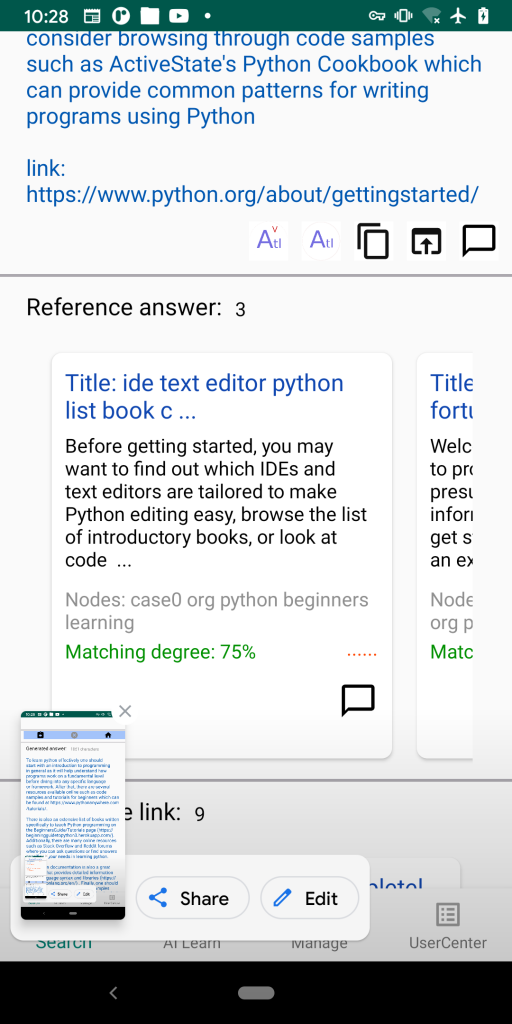A new online search engine
why do we need another online search engine
Currently, online search engines have become an integral part of our daily lives, providing us with a wealth of information at our fingertips. However, despite their convenience, there are several drawbacks associated with current search engines that limit their effectiveness and user experience.
One major drawback is that most search engines do not provide direct answers to queries in most cases. Instead, they generate a list of search results that may or may not contain the desired information. This forces users to sift through numerous web pages in search of the specific answer they are looking for, often wasting valuable time and effort.
Moreover, even when search engines do provide answers, they often lack comparison or alternative options. This can be frustrating when seeking the most suitable solution to a problem or when trying to make an informed decision. Without multiple comparable answers, users may have to rely on trial and error or spend additional time conducting further research to find alternative options.
Another significant drawback is that search engine results are not always prioritized based on their relevance or matching degree to the user’s search request. This can lead to a cluttered search results page, with relevant information buried amidst irrelevant or less useful content. Users may have to spend considerable time and effort sifting through these results to find the most relevant information, which can be a tedious and time-consuming task.
There are more painful points: the need to search again in the abundant ocean of information if you forget a crucial clue from a previous search. When conducting a search, it is common to come across a wealth of information that may be relevant to your query. However, the challenge arises when you fail to remember a specific keyword or detail from your previous search. This means that you are left with no choice but to dive back into the vast ocean of information and start your search from scratch.
This drawback can be incredibly frustrating and time-consuming, particularly when you are dealing with complex or specialized topics. The sheer volume of information available online can be overwhelming, and having to search again without the proper clue can lead to a loss of productivity and efficiency.
Moreover, searching again in the information ocean can also result in information overload. With each search attempt, you are presented with a plethora of search results, many of which may not be directly related to your query. This can further complicate the search process and make it even more challenging to find the desired information.
In addition, constantly having to search again can also lead to a loss of focus and direction. It disrupts the flow of research or inquiry and can make it difficult to maintain a coherent line of thought. This drawback can be especially problematic for individuals working on time-sensitive projects or those who need to quickly find accurate information.
Furthermore, search engines often rely on algorithms and data analytics to determine the order of search results, which may not always accurately reflect the user’s intent. This can result in biased or skewed search results, limiting the user’s access to diverse perspectives and alternative viewpoints.
BrainAtom
Online search
Essential captured
Your time is saved due to most related sections are perceived.
Results are presented on matching degree
Simple enough, anyone can do.
several related choices are presented
You could designate where you want to put it.
No search again
by Working with learning AI
All you need to do is ask.

